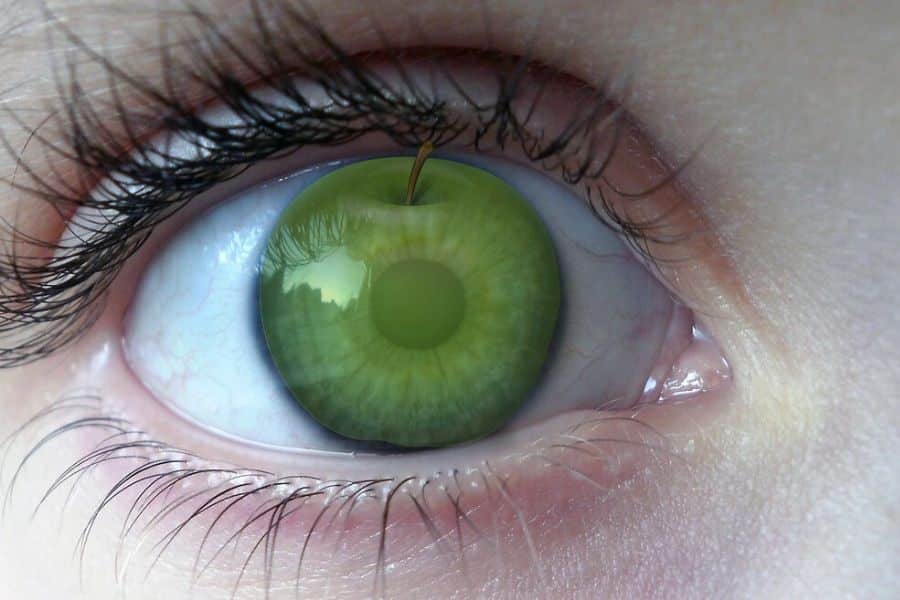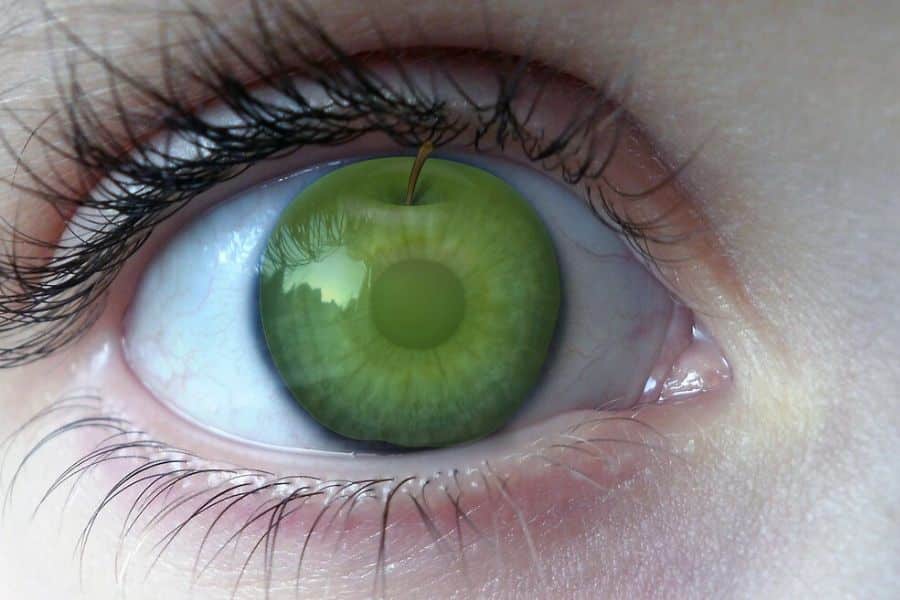The apple of your eye definition and meaning
‘The táo apple of my eye’ is an idiom that Shakespeare used in his A Midsummer Night’s Dream play. However, Shakespeare was using this phrase literally (simply referring khổng lồ the pupil of an eye), rather than the figurative way it is used today.
Bạn đang xem: The apple of your eye definition and meaning
Meaning of ‘the táo of my eye’:
It is in the Bible that phrase ‘apple of my eye’ is first used figuratively. The hãng apple of the eye was a favourite idiom of the Old Testament writers khổng lồ indicate something, and particularly a person, that one values above all other things.
The phrase comes from a Hebrew expression that literally means ‘little man of the eye.’ It refers to lớn the tiny reflection of yourself that you can see in other people’s pupils. Khổng lồ be the táo apple of someone’s eye clearly means that you are being focused on & watched closely by that person. Your very image is central in the eyes of that person!
This biblical meaning of ‘the hãng apple of your eye’ comes to us quite independently of Shakespeare’s use of the term. They are two completely different usages of the phrase. The phrase can be found in several Old Testament books of the King James Bible:
Biblical usage of ‘the táo bị cắn of my eye’:
‘He found him in a desert land, và in the waste howling wilderness; he led him about, he instructed him, he kept him as the hãng apple of his eye’Deuteronomy 32:10
‘Keep me as the táo of the eye, hide me under the shadow of thy wings.’Psalm 17:8. In this one, when the psalmist (David) asks God khổng lồ keep him as the apple of His eye he is asking God to lớn keep an eye on him & not thua sight of him. David was asking God to lớn regard him as one would a cherished child, the object of great affection.
‘Keep my commandments, and live; and my law as the táo khuyết of thine eye.’Proverbs 7:2
‘Their heart cried unto the Lord, O wall of the daughter of Zion, let tears run down lượt thích a river day và night: give thyself no rest; let not the táo of thine eye cease.’Lamentations 2:18.
Xem thêm: Xem Trọn Bộ Phim Tân Tam Quốc Diễn Nghĩa 2010 Tập 31, Xem Trọn Bộ Phim Tam Quốc Diễn Nghĩa 2010
‘For thus saith the Lord of hosts; After the glory hath he sent me unto the nations which spoiled you: for he that toucheth you toucheth the táo of his eye.’Zachariah 2:8
The idiom is very much alive in our everyday speech today & widely used among English speaking countries và instantly understood by everyone.


The apple of my eye
Shakespeare’s use of ‘the táo bị cắn of his eye’
Shakespeare uses the term ‘the táo bị cắn of his eye’ but not in the idiomatic sense that the Old Testament writers did.
Shakespeare used the phrase only once – in A Midsummer Night’s Dream. The fairy king, Oberon, instructs his servant, the fairy, Puck, to drop a love potion in Demetrius’ eye:
‘Flower of this purple dye,Hit with Cupid’s archery, Sink in táo khuyết of his eye’.
Shakespeare is using ‘apple of his eye’ quite literally here. The original meaning of the eye’s hãng apple was purely anatomical. It derives from the fact that there was no scientific word khổng lồ describe the pupil of the eye. In Shakespeare’s time they referred to the pupil as the ‘apple of the eye,’ as it was round & solid và resembled an apple. The term ‘pupil’ as we use it today, came much later.
Shakespeare uses it in that earlier sense – as the pupil of the eye. Oberon tells Puck lớn squeeze the potion in the pupil of the eye. So the term ‘apple of the eye’ as Shakespeare uses it does not have an idiomatic or figurative meaning – it is quite literal.









